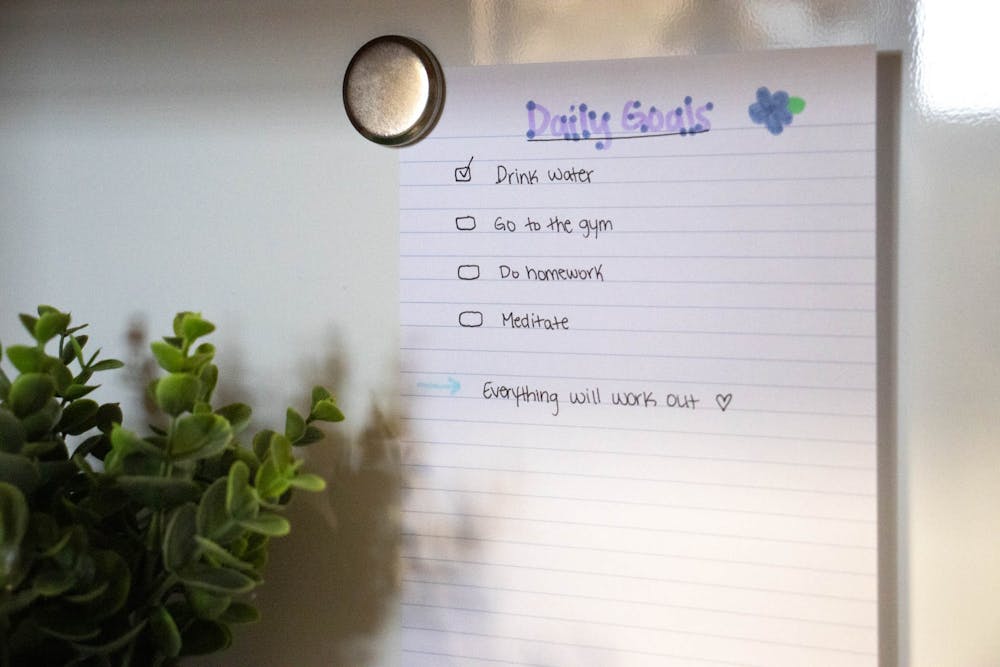Everything just works out for me. Good things just come my way. The universe is on my side. I get everything I want through my positive attitude and intentional affirmations. I have Lucky Girl Syndrome.
Lucky Girl Syndrome is TikTok’s latest manifestation trend. The idea is that using affirmative mantras and having a positive outlook on life will cause things to simply go your way.
But Lucky Girl Syndrome isn’t a new phenomenon, it’s a catchy name for a centuries-old theory of manifestation that promotes what is essentially just positive thinking. The law of attraction, a similar pseudoscientific theory that emphasizes the influence of one’s own thoughts on outcomes in their life (whether positive or negative), made it to popular culture with the release of Rhonda Byrne’s self-help book, "The Secret," in 2006. Manifestation practices also spiked during the pandemic when people were desperate to will themselves out of a worldwide crisis.
I do think there is power in positive thinking and in theories such as the law of attraction and practices like intention-setting. But, is it "Lucky Girl Syndrome," or is it just privilege?
When I first came across this trend on TikTok, I bought into it. Why not just try to think my dream life into existence? When the trend picked up, though, and these videos came up on my feed more frequently, I noticed a commonality among the creators promoting Lucky Girl Syndrome: a large majority of these creators are white, thin, cisgender and/or conventionally attractive.
These TikTok creators seem to use the phrase, “everything just works out for me” until it becomes the truth. But did they get a high-paying job they were underqualified for because they’re lucky, or because they could pay to go to an elite private university that feeds graduates into the company where they got the job? Did they get a free drink because they’re lucky, or because they have pretty privilege? Did they get that awesome apartment because they’re lucky, or because the landlord has an implicit (or explicit) racial bias?
It’s possible that these creators do experience bouts of luck, but luck does not exist in a vacuum. Biases and privileges, whether they work for or against you, are strong.
Positive thinking is important. But so is taking reality into account.
People who read ten self-help books and get really caught up in manifestation through vision boards or journaling, for example, can easily move from positive thinking to wishful thinking. There is a fine line between manifesting and acting like the world owes you something. In order to get your dream job, for example, you have to work for it. No one can expect their dream life to be handed to them as a result of Lucky Girl Syndrome.



